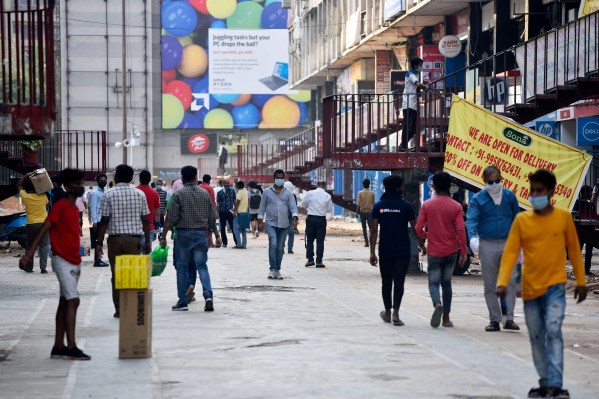
More than one billion people in India today have a mobile connection, thanks in part to the proliferation of low-cost Android smartphones and the world’s cheapest mobile data plans in recent years.
This scale was unimaginable just three decades ago, when India had fewer than 2.5 million telephones in the country. One of the earliest and most pivotal efforts that expanded the reach of telephones in the country took place in the late 1980s.
That was when the Indian government backed the idea of setting up telephone booths, or public call offices, across cities and towns. No longer did people need to buy expensive telephones, or pay exorbitant fees and bills. A person could just walk to a nearby mom and pop store, place a call for a couple of cents and move on.
On Wednesday, India’s cabinet approved a proposal that seeks to replicate the decades old strategy — and its success — with democratizing Wi-Fi in the world’s second largest internet market.
India’s IT Minister Ravi Shankar Prasad said that the government will launch PM WANI (Prime Minister Wi-Fi Access Network Interface) to “unleash a massive network in the country.”
The neighborhood stores that served as public call offices could now be public data offices, he said. To make the program a success, the government will not charge any license or registration fee, he said.
These public data offices will work in tandem with public data aggregators that are tasked to collaborate with small and large telecom companies to utilize their optical fibre network.
The program will “create millions of inter-operable Wi-Fi hotspots in the country and democratise content distribution and broadband access to millions at affordable rates,” said R.S. Sharma, former chairman of Indian telecom regulator TRAI. He likened the program to UPI, a payments infrastructure built by retail banks, which has become the most popular way Indians pay digitally today.
Hundreds of millions of people came online in India for the first time in the last decade. But just as many are still unconnected. The new program from the Indian government, in part, aims to bridge this gap.
“This is expected to be more business friendly and in line with efforts for ease of doing business.COVID-19 pandemic has necessitated delivery of stable and high speed Broadband Internet (data) services to an increasingly large number of subscribers in the country including areas which do not have 4G mobile coverage. This can be achieved by deployment of Public Wi-Fi,” the cabinet said in a statement. “Further, the proliferation of public Wi-Fi will not only create employment but also enhance disposable incomes in the hands of small and medium entrepreneurs and boost the GDP of the country,” it added.
Wednesday’s announcement is the latest effort to bring more people online in India. Global giants Google and Facebook, both of which are counting on emerging markets such as India to sustain their growth, have previously attempted to make internet access more affordable in the country. While Facebook’s marquee effort, Free Basics, was banned in the country over net neutrality violation charges, Google voluntarily shut down its free Wi-Fi program at 400 railway stations this year.
As mobile data prices got cheaper in many markets, including India, Google Station was no longer necessary, Caesar Sengupta, VP of Payments and Next Billion Users at Google, said at the time.
Jayanth Kolla, chief analyst and founder of consulting firm Convergence Catalyst, told TechCrunch that the Indian government should have launched this program seven to eight years ago.
He said the launch of Jio Platforms, which has become the largest telecom operator in India in just four years thanks to its cutrate mobile data tariffs, solved much of the challenges that PM WANI seeks to address.
